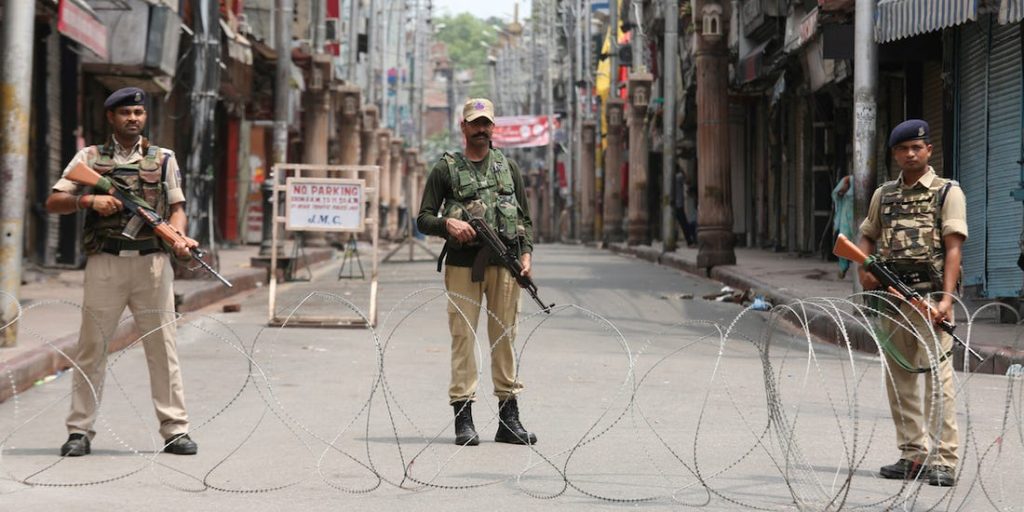It has been more than half a year since the government clamped down on Jammu and Kashmir to ensure the smooth implementation of the Citizenship (Amendment) Act in the newly formed Union Territory. But the government is still unsure whether it can ‘safely’ lift the restrictions on the Internet and allow citizens free access. After briefly allowing people in the UT access to a select number of white-listed sites, the authorities went back to cutting Internet services — the latest citing the death anniversary of Afzal Guru, the person hanged for his involvement in the Parliament attack on December 13, 2001. It had last cut Internet services on the eve of Republic Day, citing security reasons and fears the medium of communication would be misused to spread fake news. Such misuse at the instigation of external forces, government believes, would get the people of the state unfavourably disposed towards the Central government and could lead to unrest.
The system, obviously, cannot afford to have a highly unruly revolt on its hands. Although the fears of the government are not entirely unfounded given the experience the armed forces have had in the past, especially with mobilisation of groups of stone-pelters, what is incongruous with this narrative is that there are several alternative means by which the technological restrictions can be bypassed to gain access to what people need. Of course, the less technologically savvy people may not be able to gain access to the Net by these means, but the more proficient ones can find ways out of the situation even for these people. A report published on online news site claims that the use of Virtual Private Network applications have risen in the UT in the wake of the ban on Internet. This is happening despite there being a ban on the use of such applications. The problem with such a scenario emerging is that the state by its clampdown is leading to more clandestine communication than by regular means. That could easily backfire and lead to further chaos. It may also be considered naïve to think that a state like J&K, with a long history of terror activities, a porous border and development of an overall anti India character among the common people, would not have developed alternative means of communication. This is a reminder of the Emergency days of late Ms Indira Gandhi. While mainstream newspapers were gagged, people did manage to spread rumors that reached far and wide in few moments. Such clamping down on normal means provokes people to opt for negative things.
One other means the government has adopted to keep the people of Kashmir quiet is the extension of the arrest of key leaders, including former chief ministers Mehbooba Mufti and Omar Abdullah. They recently invoked the stringent Public Safety Act against these leaders — seven leaders in all have been detained under PSA — after keeping them under preventive detention since August 5. Here, again, the government is bound to awaken ill feelings among the support base of these leaders. If anything, it will only gain these leaders greater emotional dividends to strengthen their edifice of support. Now they may be compelled to tilt towards the anti India factions within their respective parties. No matter how strong and numerically higher the government forces deployed in the valley may be, and no matter what funding they provide to further strengthen development of the UT, the mistrust the government might, most likely, be earning is bound to negate all efforts. There is no doubt that the government has an intention to end the crisis in Kashmir. But the approach has been wrong from the outset. Sheer use of force is inadequate to wrest the region out of the clutches of enemy machinations. A clever combination of developmental efforts and engagement with people alongside strong-arm tactics in curbing terror alone might work in mainstreaming the Kashmiris with the rest of the country. The government can still save the day by trusting the people of Kashmir and by not denying them the space they deserve. Now that the government has taken up the task of integrating Kashmir with India, it should do justice to it and keep its focus on the Gordian knot until it is undone. Otherwise, this single abrogation may separate Kashmiris from India emotionally forever.


